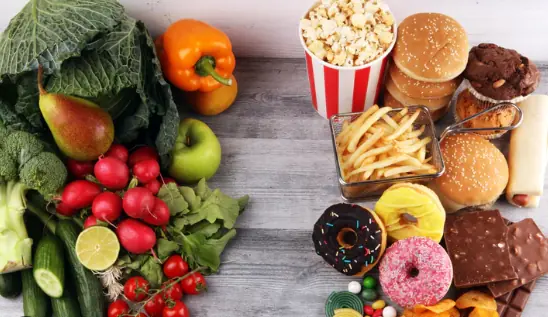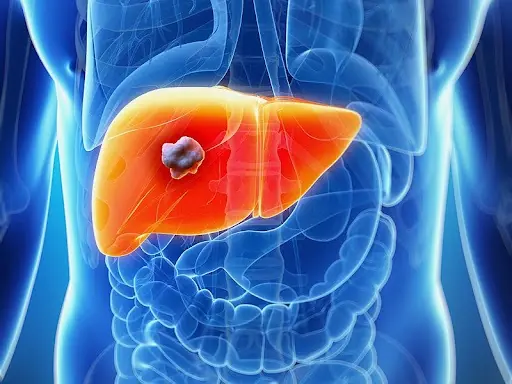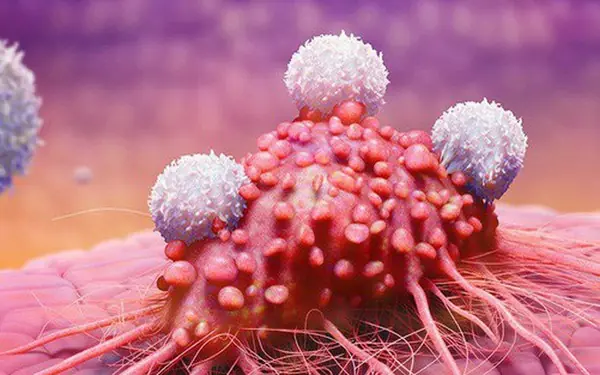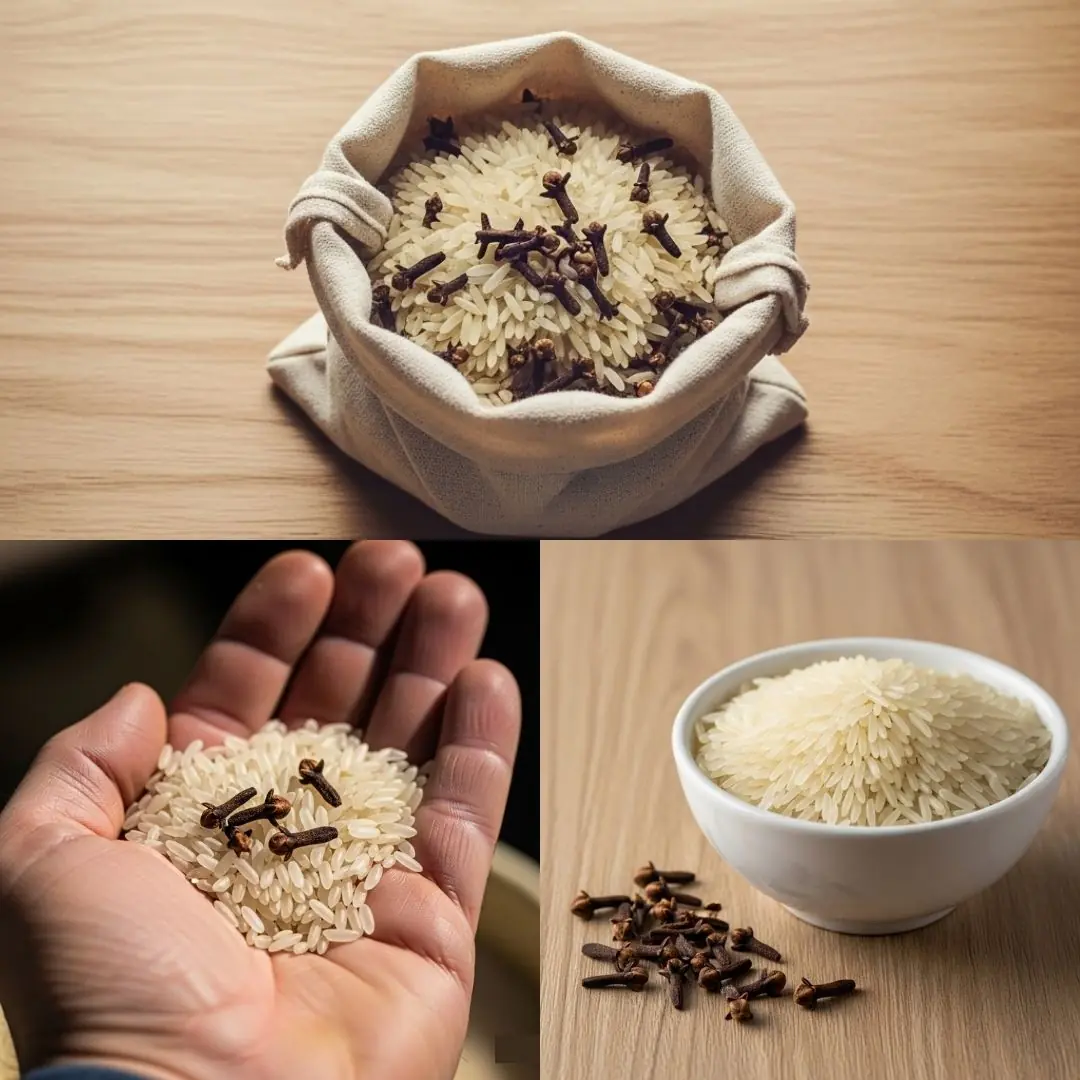
31 Foods Experts Say You Should Avoid (Or Severely Limit)
31 Foods Experts Say You Should Avoid (Or Severely Limit)
When it comes to living a healthy lifestyle, not all foods are created equal. While moderation is always key, some foods offer very little nutritional value and can even harm your health if you eat them often. Experts have identified several foods that you should limit or avoid in your diet.
1. Processed Meats
Bacon, hot dogs, and cold cuts might be convenient, but they come with significant health risks. These are foods to avoid because they're high in sodium and saturated fats, which can contribute to heart disease and high blood pressure. The World Health Organization even classifies processed meats as carcinogens due to their links to cancer.
-
Healthier Swap: Choose lean proteins like grilled chicken, turkey, or tofu.
2. Sugary Beverages
Regular soda, sweetened teas, and juice cocktails are packed with added sugars and offer almost no nutritional benefit. These drinks can contribute to obesity, type 2 diabetes, and tooth decay.
-
Healthier Swap: Reach for water, herbal teas, or sparkling water infused with natural fruit flavors.
3. White Bread and Refined Grains
White bread and other refined grain products have been stripped of their fiber and many nutrients. This can lead to rapid blood sugar spikes and increased hunger. Over time, these can contribute to weight gain and insulin resistance.
-
Healthier Swap: Choose whole-grain or sprouted bread for more fiber and nutrients.
4. Fried Foods
French fries and other deep-fried foods are high in trans fats, which you should avoid. These fats can increase "bad" LDL cholesterol and lower "good" HDL cholesterol, raising your risk of heart disease.
-
Healthier Swap: Try oven-baked fries or air-fried vegetables for a crunchy yet healthy alternative.
5. Energy Drinks
Packed with sugar and artificial ingredients, energy drinks might give you a temporary boost, but they often lead to an energy crash later. Their high caffeine content is linked to anxiety, sleep disturbances, and an increased heart rate.
-
Healthier Swap: If you need an energy boost, opt for black coffee or green tea.
6. Pre-Made Dough and Packaged Pastries
While convenient, pre-made dough and packaged pastries are often loaded with hydrogenated oils and added sugars. These ingredients can increase inflammation and your risk of heart disease.
-
Healthier Swap: Make your own dough using whole-grain flours, or look for brands with minimal additives.
7. Fried Rice
Fried rice often contains excessive amounts of oil, soy sauce, and sometimes high-sodium seasonings. "The problem with fried rice is that it can pack in a lot of calories and sodium without providing much nutritional value,” says Maggie Michalczyk, a registered dietitian nutritionist. The added fats and refined carbs can contribute to weight gain and other health concerns if eaten frequently.
-
Healthier Swap: Opt for steamed brown rice or cauliflower rice for a lower-calorie, fiber-rich alternative. You can sauté it lightly with vegetables and a small amount of olive oil for added flavor.
8. Sweetened Yogurt
Flavored yogurts can contain as much sugar as a dessert. While they might seem like a healthy choice, the amount of added sugars can completely cancel out their nutritional benefits.
-
Healthier Swap: Stick with plain yogurt and add fresh fruit for natural sweetness.
9. Potato Chips and Processed Snacks
Chips and similar processed snacks are calorie-dense and nutrient-poor, offering little more than empty calories and high sodium content.
-
Healthier Swap: Try roasted chickpeas, kale chips, or nuts for a more nutritious snack.
10. Alcoholic Beverages
Excessive alcohol consumption is linked to liver disease, cardiovascular issues, and certain cancers. Even moderate or occasional drinking can negatively impact sleep and weight management.
-
Healthier Swap: Mocktails or sparkling water with a splash of citrus provide a comparable yet low-calorie alternative.
11. Flavored Instant Oatmeal
Many flavored instant oatmeals contain high amounts of sugar, artificial flavorings, and preservatives that strip away the natural benefits of oats. These additives can cause a rapid spike in blood sugar levels, leading to a quick burst of energy followed by a crash. Also, the refining process usually removes much of the fiber and nutrients, reducing oatmeal’s heart-healthy and digestive benefits.
-
Healthier Swap: Opt for plain, unsweetened oats and flavor them yourself naturally. Add fresh fruits, nuts, seeds, or a drizzle of honey for sweetness and nutrition without compromising your health. Overnight oats or steel-cut oats are excellent alternatives.
12. Pre-Made Smoothies
Pre-made smoothies, especially those found in grocery stores or cafes, often contain added sugars, syrups, and high-calorie ingredients like ice cream or sweetened yogurts to make them more appealing. While their ingredients might provide some vitamins from fruits, the sugar content can completely negate any benefits and contribute to weight gain and insulin resistance. Additionally, pre-packaged smoothies often lack the fiber found in whole fruits due to processing.
-
Healthier Swap: Make smoothies at home! Use whole fruits, unsweetened yogurt, plant-based milk as a base, and incorporate leafy greens, flaxseeds, or chia seeds for added fiber and omega-3 fatty acids. Making your own allows you to control the ingredients you put in your body.
13. Vegetable Chips
Vegetable chips, whether they're beet, sweet potato, or kale-based, are often marketed as a healthier alternative to regular potato chips. However, they are still typically fried and coated in oil and artificial flavoring. These chips can be just as calorie-dense and unhealthy as traditional ones, often having high saturated fat and sodium levels. Consuming them regularly can lead to weight gain and increased cholesterol levels.
-
Healthier Swap: Make vegetable chips at home by thinly slicing fresh vegetables, lightly tossing them with olive oil and spices, and baking them in the oven. This method preserves nutrients while minimizing unhealthy fats and additives.
14. Bottled Salad Dressings
Bottled salad dressings usually contain high amounts of sugar, sodium, and artificial preservatives. Adding these to a salad can turn a nutritious meal into a calorie-laden one. Some dressings are full of trans fats or low-quality vegetable oils that negatively impact your health. Even "light" or "low-fat" dressings can be problematic, as they're often loaded with sugar to make up for a lack of flavor.
-
Healthier Swap: Make your own salad dressings at home using simple ingredients. Use olive oil, balsamic vinegar, mustard, lemon juice, and herbs – even a simple salt and pepper addition can go a long way. Homemade dressings are easy to make and give you control over the sodium, sugar, and fat content.
15. Canned Fruit
Canned fruit can be convenient in a pinch, but it's often packed with added sugars to extend its shelf life. These additives significantly increase calorie content while reducing nutritional value. The syrup inside overwhelms the natural sweetness of the fruit, taking over its authentic flavor and leading to potential blood sugar spikes. Over time, frequent consumption can lead to weight gain and increase the risk of type 2 diabetes.
-
Healthier Swap: If you must buy canned fruit, choose those packed in water or 100% natural juice. Ideally, opt for fresh or frozen fruits, which retain their full nutritional profile without added sugars. You'll get all the vitamins, minerals, and antioxidants without unnecessary calories.
16. Energy Bars
Energy bars are often marketed as both convenient and healthy, especially for those with an active lifestyle. However, many brands are essentially candy bars in disguise, containing high levels of added sugar, artificial flavors, and unhealthy fats. While they may provide a quick energy boost, this is often followed by a crash due to their lack of balanced nutrients. Consuming energy bars regularly can contribute to weight gain and poor metabolic health.
-
Healthier Swap: Look for energy bars with minimal, whole ingredients like nuts, seeds, and dried fruits. Alternatively, make your own homemade energy bars with oats, nut butter, and natural sweeteners like honey or dates.
17. Restaurant Soups
Restaurant soups often contain hidden ingredients that make them less healthy. Cream-based soups are typically high in saturated fats, while broth-based varieties can be loaded with sodium. Many restaurants also use flavor enhancers like monosodium glutamate (MSG), which may cause adverse reactions in sensitive individuals.
-
Healthier Swap: Make soups at home using fresh vegetables, lean proteins, and low-sodium broths. Blend cooked vegetables like carrots or squash to create a creamy texture without needing heavy cream.
18. Flavored Yogurt Drinks
Flavored yogurt drinks are often promoted as a source of probiotics and calcium, but many contain as much sugar as a soft drink. Artificial flavors further diminish any nutritional value, and regularly drinking these risks excess calorie intake, weight gain, and imbalanced gut health.
-
Healthier Swap: Choose plain, unsweetened yogurt and add fresh fruit or a drizzle of honey for sweetness. If you prefer a drinkable option, blend your yogurt with fresh fruit to create your own nutritious and naturally-flavored yogurt drink.
19. Fruit Juices with Additives
Packaged fruit juices labeled as "100% natural" or "not from concentrate" can still contain added sugars and preservatives. These additives are a double-whammy: they increase calorie content and strip away the fiber and nutrients found in whole fruits. Regular consumption can lead to blood sugar imbalances and weight gain.
-
Healthier Swap: Instead of packaged juices, simply eat whole fruit – they naturally contain fiber and essential nutrients. If you prefer juice, make it at home without added sugars or preservatives.
20. Frozen Pizza
Frozen pizzas may be convenient, but they’re typically high in sodium, unhealthy fats, and preservatives. The toppings often include processed meats and cheeses, which further increase their calorie content and reduce nutritional value. Regularly eating them can contribute to poor heart health and weight gain.
-
Healthier Swap: Make your own pizza at home using whole-grain dough, fresh vegetables, lean proteins, and low-fat cheese. Many grocery stores offer build-your-own pizza kits.
21. Sweetened Plant-Based Milks
Plant-based milks, such as almond, soy, or oat milk, have become popular alternatives to regular dairy. However, sweetened varieties often contain so much added sugar, artificial flavors, and preservatives that their nutritional benefits are completely diminished. Drinking sweetened plant-based milk regularly can lead to unnecessary sugar consumption and a skewed calorie intake.
-
Healthier Swap: Choose unsweetened versions of plant-based milk to minimize added sugars. If you prefer a flavored option, add a touch of vanilla extract or cinnamon to enhance the taste naturally.
22. Artificially Sweetened Chewing Gum
Is gum harmless? Not always. Artificial sweeteners like aspartame or sorbitol found in gum can cause digestive discomfort in some individuals. Also, some brands use synthetic flavorings and colors that offer no nutritional value.
-
Healthier Swap: Look for gum made with natural sweeteners and flavorings and avoid artificial additives.
23. Powdered Drink Mixes
Powdered drink mixes are a convenient way to flavor water, but they usually contain artificial colors, flavors, and sweeteners like sucralose or saccharin. These ingredients can lead to digestive issues and may contribute to long-term metabolic imbalances.
-
Healthier Swap: Flavor water naturally with slices of fresh fruit, mint, or a splash of freshly squeezed citrus juice. You’ll still get a refreshing drink without any added chemicals.
24. Coffee Creamers
Non-dairy creamers are popular additions to coffee but often contain hydrogenated oils, artificial sweeteners, and emulsifiers. These ingredients can raise cholesterol levels and contribute to inflammation. Flavored creamers may also include high levels of added sugars, making your morning coffee a hidden calorie bomb.
-
Healthier Swap: Use regular milk or unsweetened plant-based creamers as a natural substitute. For added flavor, consider adding vanilla extract or cinnamon.
25. Ready-to-Eat Breakfast Cereals
Ready-to-eat breakfast cereals are often loaded with sugar, refined grains, and artificial additives. These cereals cause rapid blood sugar spikes and fail to provide lasting energy, making them a poor choice for starting the day. While technically marketed as “part of this complete breakfast,” the part they play is minimal.
-
Healthier Swap: Choose whole-grain cereals with minimal added sugar, or prepare oatmeal (see #11) topped with fresh fruit, nuts, and seeds for a balanced and nourishing breakfast.
26. Pre-Packaged Sandwiches
Pre-packaged sandwiches from convenience stores or vending machines are often made with processed meats, refined bread, and high-sodium condiments. These ingredients make such sandwiches a calorie-dense, nutritionally lacking meal.
-
Healthier Swap: Make your own sandwiches at home. Use whole-grain bread, fresh vegetables, lean proteins, and spreads like avocado or hummus.
27. Meal Replacement Shakes
Meal replacement shakes, while convenient, often contain high levels of sugar, artificial flavors, and low-quality proteins. While they promise quick nutrition, they often lack fiber and balanced whole foods, leaving you still feeling hungry and potentially leading to overeating later.
-
Healthier Swap: Try to create your own balanced meals with whole foods like lean proteins, whole grains, and vegetables. If a shake is necessary, choose one made with minimal ingredients, a solid protein option, and no added sugars.
28. Sweetened Condensed Milk
Sweetened condensed milk is commonly used in desserts but is packed with added sugars and saturated fats. Regular use can significantly increase calorie intake and contribute to weight gain and poor metabolic health.
-
Healthier Swap: Use evaporated milk with a small amount of natural sweetener as a substitute in recipes, or explore dairy-free alternatives made from nuts or seeds. Alternatively, simply reduce your consumption of baked goods containing it.
29. Fast Food Wraps
Fast food wraps are often marketed as a healthier option than a burger, but they can still be calorie-dense due to high-sodium fillings, creamy sauces, and refined tortillas. These ingredients can make wraps just as unhealthy as other fast food items.
-
Healthier Swap: Make them at home! Use whole-grain tortillas, fresh vegetables, lean proteins, and low-fat spreads or dressings.
30. Flavored Rice Mixes
Pre-flavored rice mixes are a quick, convenient meal solution but often include artificial flavorings, preservatives, and excessive sodium. These additives make them far less nutritious than plain rice, and regular consumption can contribute to high blood pressure and and other health issues.
-
Healthier Swap: Cook your own plain rice. You can season it with fresh herbs, garlic, or a small amount of olive oil, but make it yourself to control the ingredients.
31. High-Sugar Granola Bars
While marketed as healthy, many granola bars are filled with sugar and artificial ingredients, causing blood sugar spikes.
-
Healthier Swap: Look for bars with whole grains, nuts, and minimal added sugars, or make your own at home.

Takeaway
Rather than adopting a restrictive mindset, consider these expert recommendations as opportunities to make informed choices. Small, consistent changes can lead to better long-term health outcomes. Prioritizing whole, nutrient-dense foods while limiting the items above will set you on a path to feeling your best every day. So many things on this list can be improved by simply making them at home instead of buying the pre-made version. Yes, it might be more time-consuming and require more effort, but you'll have full control and knowledge of what you're putting in your body. If it's a food you eat regularly, please strongly consider making it yourself.
Which of these foods do you find the most challenging to cut back on?
News in the same category


Diagnosed with Terminal Cancer, Preparing for the End – A Man’s Miraculous Survival Thanks to 3 Major Life Changes

Warning signs of stroke 30 minutes before – remember them to save your life and your loved ones

Your Body's Silent Alarms: 9 Subtle Signals of a Heart Attack, Up to a Month Before It Strikes

Heart Surgeon Warns: 4 Foods and Drinks You Should "Always Avoid" to Protect Your Body

12-year-old girl dies of rare cancer—parents noticed worrying sign as she brushed teeth

Just Two Hours of Sitting in Silence May Spark Growth of New Brain Cells, Study Finds

Rising Kidney Failure in Young People: One Harmful Habit Many Are Unknowingly Practicing

5 Early Signs of Liver Failure: Seek Medical Help Early to Prolong Life – Number 2 Is Especially Common

7 Health Problems That Can Happen If You Don’t Drink Enough Water

Home Remedies to Treat and Prevent Ingrown Toenails (Onychocryptosis)

Blood Clot in Leg: Crucial Signs and Symptoms You Can't Afford to Ignore

20 Subtle Cancer Symptoms Many People Miss

Game Changer: New Urine Test Detects Pancreatic and Prostate Cancer Early with 99% Accuracy

Surprising Triggers: What May Be Causing Your Hives (Urticaria)

The Truth Behind ‘Durex’: What Its Name Actually Stands For Has Stunned Many

Your Eyes: Windows to Your Health – Uncovering Diabetes and Cancer Through Vision

5 Early Warning Signs of Cancer in Children: Parents Must Know to Save Their Child

If Your Body Has a Bad Odor in These 3 Areas, It Could Mean Poor Liver Detox and Declining Function – Get Checked Before It’s Too Late!
News Post

100-Year-Old Doctor Reveals: 7 Daily Habits to Help You Live a Healthy Life

Diagnosed with Terminal Cancer, Preparing for the End – A Man’s Miraculous Survival Thanks to 3 Major Life Changes

Warning signs of stroke 30 minutes before – remember them to save your life and your loved ones

Researchers Discover Crows Hold ‘Funerals’ To Mourn Their Dead

China Unveils Terrifying Mosquito-Sized Spy Drone For Covert Missions

James Webb Telescope Unveils Uranus’s Hidden Features In Striking Infrared Photo

Microsoft’s AI Tool Is Secretly Capturing Screenshots Of Everything—Including Your Private Content

Live Plane Map Reveals Eerie, Skull-Like Shape That’s Making People Uneasy

China Begins Construction Of Massive 4.4 M Just Spectroscopic Telescope In Qinghai

Scientists Issue Stark Warning as Antarctic Ice Sheet is on Verge of Collapsing and Causing Irreversible Global Damage

New Study Suggests That Water Isn’t the Most Hydrating Drink

The Trans-Canadian Rail Route: An Iconic Journey Across Canada

Can You Spot the 6 Hidden Words in This Living Room Image?

Your Body's Silent Alarms: 9 Subtle Signals of a Heart Attack, Up to a Month Before It Strikes

Heart Surgeon Warns: 4 Foods and Drinks You Should "Always Avoid" to Protect Your Body

The first animal you spot in this visual reveals your ‘worst flaw’

Nature’s Secret Superfood: Why Purslane Is the Game-Changer Your Health Needs 🌿

🚫 Say Goodbye to Weevils: Easy Tips to Keep Your Beans and Rice Safe

